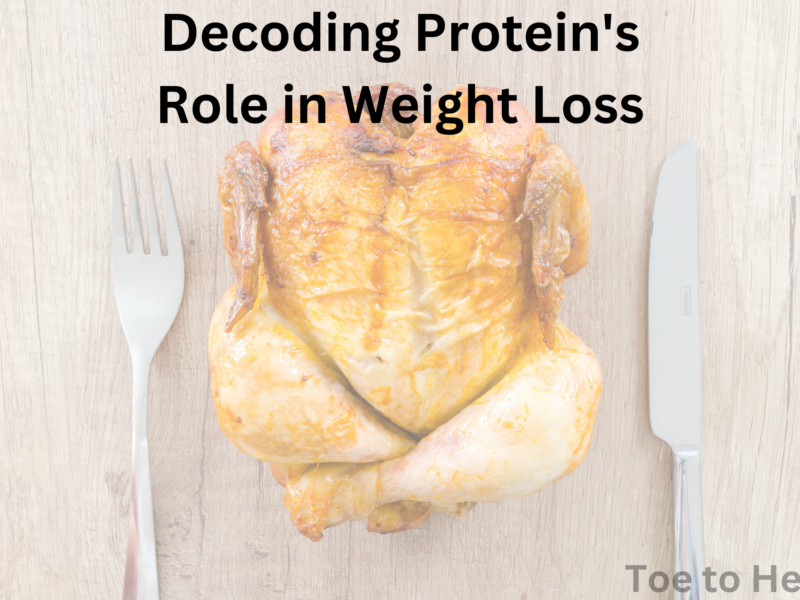When it comes to optimizing health and wellness, the relationship between protein and metabolism takes center stage. Understanding how these two factors interplay can have significant implications for weight management, energy levels, and overall vitality. In this article, we will unravel the intricate connection between protein and metabolism, exploring the science behind their interaction and practical insights for a healthier lifestyle.
The Basics: Protein’s Role in Metabolism
Metabolism refers to the complex set of chemical processes that occur within our bodies to maintain life. At the heart of this intricate system is the role of proteins. Proteins, composed of amino acids, are essential for the growth, repair, and maintenance of tissues, but they also play a crucial role in regulating metabolic processes.
Protein and Thermogenesis
One key aspect of the protein-metabolism connection is thermogenesis. Thermogenesis is the process by which the body generates heat and energy from digesting food. Protein-rich foods have been shown to induce a higher thermic effect compared to fats and carbohydrates, meaning the body expends more energy to digest and process proteins. This increased energy expenditure contributes to a higher metabolic rate.
Amino Acids and Hormonal Regulation
Amino acids, the building blocks of proteins, are involved in the synthesis of hormones that regulate metabolism. For instance, hormones like insulin and glucagon, both influenced by protein intake, play a pivotal role in controlling blood sugar levels and energy utilization.
Practical Insights: Optimizing Protein Intake for Metabolism
Balancing Macronutrients
Achieving an optimal balance of macronutrients, with a focus on adequate protein intake, is crucial for supporting a healthy metabolism. This balance ensures that the body receives the nutrients it needs for optimal functioning.
Strategic Protein Timing
Strategic protein timing can also influence metabolism. Consuming protein-rich meals throughout the day, especially in the morning and after physical activity, can help enhance the thermic effect and contribute to sustained energy levels.

How does protein contribute to thermogenesis in the body?
Protein induces a higher thermic effect compared to fats and carbohydrates, meaning the body expends more energy to digest and process proteins. This increased energy expenditure contributes to a higher metabolic rate, making protein an essential factor in thermogenesis.
Can protein intake affect hormonal regulation in metabolism?
Yes, amino acids, the building blocks of proteins, are involved in the synthesis of hormones that regulate metabolism. Hormones like insulin and glucagon, influenced by protein intake, play a pivotal role in controlling blood sugar levels and energy utilization.
Is there an optimal time to consume protein for maximizing its impact on metabolism?
Yes, strategic protein timing can influence metabolism. Consuming protein-rich meals throughout the day, especially in the morning and after physical activity, can help enhance the thermic effect and contribute to sustained energy levels.
How does a balanced intake of macronutrients, including protein, support metabolism?
Achieving an optimal balance of macronutrients, with a focus on adequate protein intake, is crucial for supporting a healthy metabolism. This balance ensures that the body receives the nutrients it needs for optimal functioning.
Can an individual’s unique needs impact the relationship between protein and metabolism?
Yes, individual needs can vary, and consulting with a healthcare professional or a registered dietitian can provide personalized guidance based on specific health goals and conditions. Factors such as age, activity level, and overall health can influence the protein-metabolism relationship.
Are there specific protein-rich foods that are particularly beneficial for metabolism?
Yes, incorporating a variety of protein-rich foods into your diet is advisable. Examples include lean meats, fish, eggs, dairy products, legumes, and plant-based protein sources. These foods provide essential amino acids and contribute to overall metabolic health.
Conclusion: Enhancing Your Metabolic Potential
In conclusion, the connection between protein and metabolism is a multifaceted relationship that goes beyond mere caloric intake. By understanding the science behind how proteins influence thermogenesis and hormonal regulation, individuals can make informed choices to enhance their metabolic potential.
Remember, individual needs vary, and consulting with a healthcare professional or a registered dietitian can provide personalized guidance based on specific health goals and conditions. Incorporating a balanced and protein-rich diet, coupled with a holistic approach to wellness, can contribute to a healthier metabolism and overall well-being.
Unraveling the connection between protein and metabolism empowers individuals to make lifestyle choices that support their health goals. Whether you’re looking to manage weight, boost energy, or improve overall vitality, paying attention to the protein-metabolism connection can be a key component of your wellness journey.



